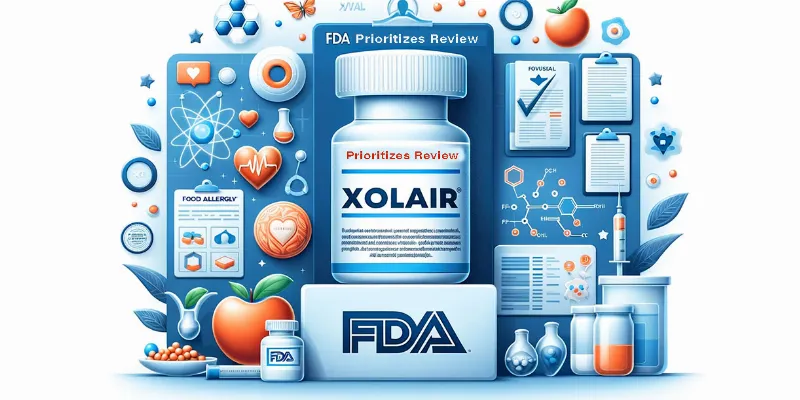FDA Prioritizes Review of Xolair: First-of-its-Kind Allergy Drug on the Brink of Approval

19 December 2023
In a landmark development, the FDA is prioritizing the review of Roche's Xolair for food allergies, following promising results from an NIH phase III study. If approved, Xolair would become the first drug to reduce reactions to multiple foods, including peanuts, milk, and eggs. This could represent a major breakthrough for the millions of people suffering from food allergies.
Roche has announced the U.S. Food and Drug Administration's (FDA) priority review of Xolair (omalizumab), a significant step towards addressing food allergies in both children and adults. Based on the positive interim results of the National Institutes of Health's phase III OUtMATCH study, Xolair has shown promise in significantly increasing tolerance to common allergens like peanuts, milk, eggs, and cashews. This could make Xolair the first medicine to reduce allergic reactions to multiple foods following accidental exposure.
“Despite the significant and growing health burden from food allergies, treatment advances have been limited,” said Dr. Levi Garraway, Roche’s Chief Medical Officer and Head of Global PD. “We are proud to partner with the NIH and leading research institutions on this groundbreaking study. The FDA’s Priority Review designation acknowledges the unmet need for these patients, and we hope to make Xolair available to as many people as possible living with food allergies in the U.S.”
With approximately 17 million Americans grappling with food allergies, the impact of this condition is extensive and often severe. Over 40% of children and more than half of adults with food allergies have experienced at least one severe reaction. The potential approval of Xolair represents a ray of hope for those affected, as it would be the first medication aimed at reducing allergic reactions to multiple foods following accidental exposure.
The positive interim analysis results of the phase III OUtMATCH study are pivotal to this advancement. In this trial, Xolair has been shown to significantly raise tolerance levels for allergens. The trial, involving a group of 165 children and adolescents, found that Xolair increased the threshold for allergic reactions compared to a placebo. This efficacy, along with a safety profile consistent with Xolair's use in other conditions, positions the drug as a potential landmark in allergy management.
The OUtMATCH study, sponsored and funded by the National Institute of Allergy and Infectious Diseases (NIAID) and conducted at 10 U.S. sites by the NIAID-funded Consortium of Food Allergy Research (CoFAR), is also supported by Genentech and Novartis Pharmaceuticals. The detailed study results have been submitted to a peer-reviewed journal by NIAID and CoFAR.
Food allergies have been on the rise over the past 20 years, with reactions ranging from mild symptoms to severe anaphylaxis. The FDA's earlier classification of Xolair as a Breakthrough Therapy for preventing severe allergic reactions following accidental exposure to foods highlights its potential impact.
Xolair is already approved for treating conditions such as allergic asthma, chronic spontaneous urticaria, and chronic rhinosinusitis with nasal polyps. Since its approval in 2003, it has been the treatment of choice for over 700,000 patients in the U.S. The FDA's forthcoming decision on Xolair's new application is eagerly anticipated, with high expectations for a positive outcome in the first quarter of 2024.
About the OUtMATCH Study
The OUtMATCH study, an NIH-sponsored trial (NCT03881696), assesses the safety and efficacy of Xolair in individuals aged 1 to 55 years with allergies to peanuts and at least two other foods. This three-stage, multicentre, double-blind, placebo-controlled study has completed its first stage. Participants were randomized to receive either placebo or Xolair injections biweekly or monthly, based on total serum immunoglobulin E levels and body weight, over a period of 16 to 20 weeks.











Comments
No Comments Yet!